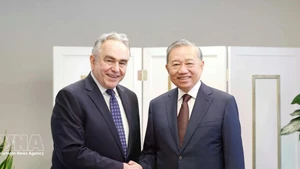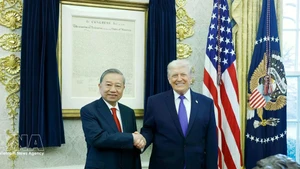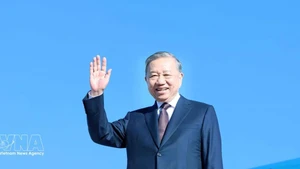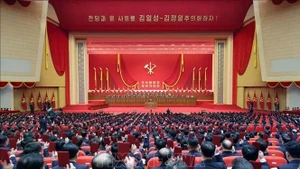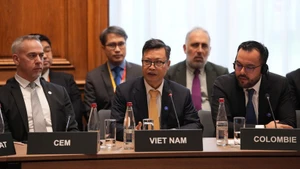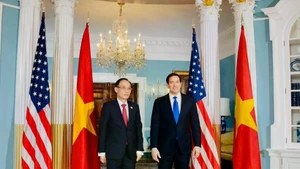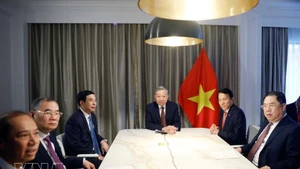The PM congratulated India on its achievements in economy, national defence and science-technology, among other fields, and highlighted the time-honoured friendship between the two countries.
He lauded outcomes of the 18th meeting of the Vietnam-India Joint Committee for Economic, Trade, Science and Technology Cooperation, co-chaired by Jaishankar and his Vietnamese counterpart Bui Thanh Son earlier the same day, and asked the two foreign ministries to maintain bilateral cooperation mechanisms and promote people-to-people exchanges.
Jaishankar praised Vietnam’s achievements in socio-economic development and foreign relations, affirming that India considers Vietnam an important partner in the region in implementing its “Act East Policy”, and wants to constantly enhance the bilateral comprehensive strategic partnership.
He conveyed regards from PM Narendra Modi to PM Chinh, and expressed his hope to welcome the Vietnamese Government leader to India in the time ahead.
Regarding specific cooperation areas, PM Chinh spoke highly of collaboration in national defence-security, and suggested India continue its support to Vietnam in officer training, and boost cooperation in cybersecurity.
Emphasising the complementary strengths of the two economies, the PM urged relevant ministries and agencies of both sides to work harder in order to increase two-way trade turnover, towards the target of 20 billion USD as set at the 18th meeting of the joint committee.
The two sides should further facilitate door opening for each other's products, limit trade barriers, consider negotiating and signing cooperation documents to create a favourable corridor for trade and investment activities, and promote connection between the two economies in terms of goods, services, interbank payment and digital payment, he continued.
PM Chinh called on India to encourage its big groups to invest in Vietnam in such areas as infrastructure, seaports, logistics, oil and gas exploration and exploitation, and renewable energy.
The PM appreciated and recommended that India continue its support to Vietnam in education-training and culture, especially providing scholarships and restoring cultural relic sites, and expressed his hope that India will create favourable conditions for Vietnamese airlines to open more direct flights to its big cities.
He also suggested two sides expand cooperation in new spheres like digital transformation, climate change response, energy transition and green growth.
For his part, Jaishankar pledged that he will coordinate closely with the Vietnamese Ministry of Foreign Affairs to materialise the results of the above-said meeting, contributing to deepening the bilateral relationship, particularly in national defence-security, economy, trade, investment, and science-technology.
He also suggested the two sides push ahead with procedures for recognising each other's agricultural products.
For regional and international issues of shared concern, the Indian FM emphasised that in the face of increasingly complex and unpredictable developments of the international and regional situation, India always attaches importance to cooperation with Vietnam in particular and the Association of Southeast Asian Nations (ASEAN) in general.
India is always ready to engage more strongly with the region, contributing to maintaining peace and stability, and promoting cooperation and development in the region, he affirmed.
The minister reiterated India’s stance on supporting ASEAN’s centrality and basic principles in solving regional problems, including the East Sea/South China Sea issue.
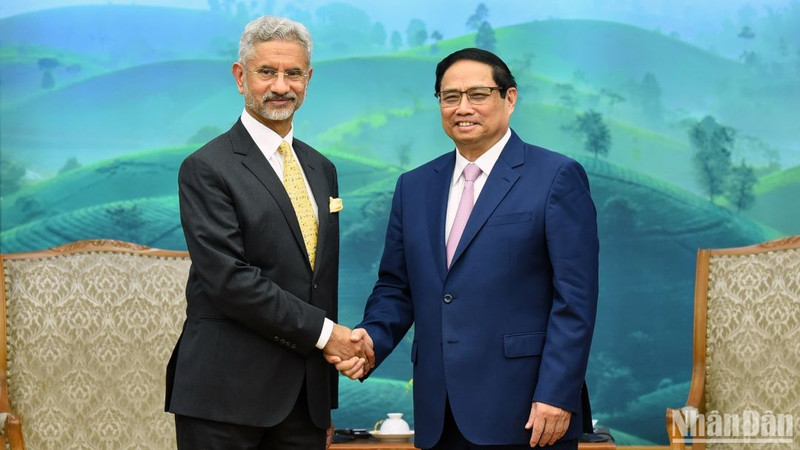
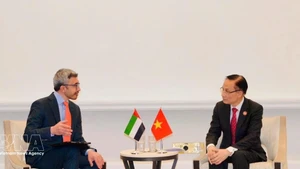
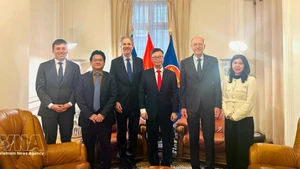
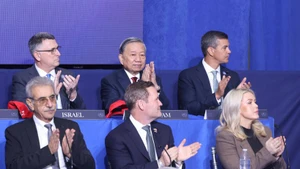
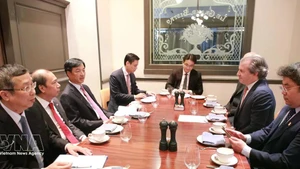
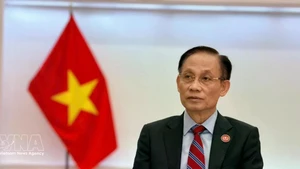
![[In pictures] Party General Secretary To Lam meets US President Donald Trump](https://en-cdn.nhandan.vn/images/dcd63867a0eed4c7753eb4bfb346593abc1ce710dfab8ad1b9aebd75ea6bf930b2ea13e4664779d689ba40aadd80f76d5d05d1208720fd7b0d811ace3a3297321c78cf738400e136e3f2d8790b24d43646e46edbe19517144a88f6ffb0d528f153574a7109328cc0949e4a4c16433c2ff751541639eefe4490518227264cbf8e/vna-potal-tong-bi-thu-to-lam-gap-tong-thong-hoa-ky-donald-trump-8599945.jpg.webp)
